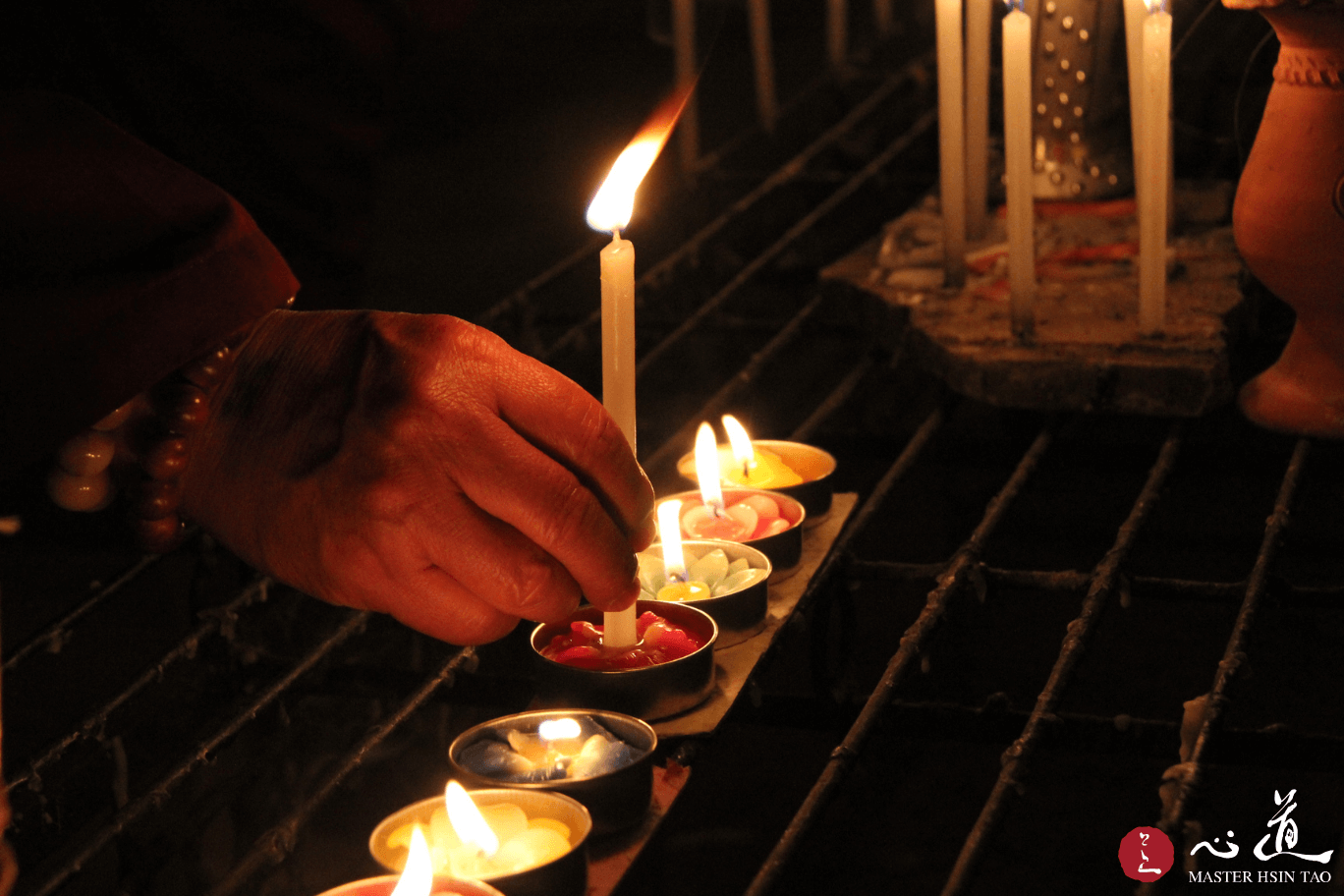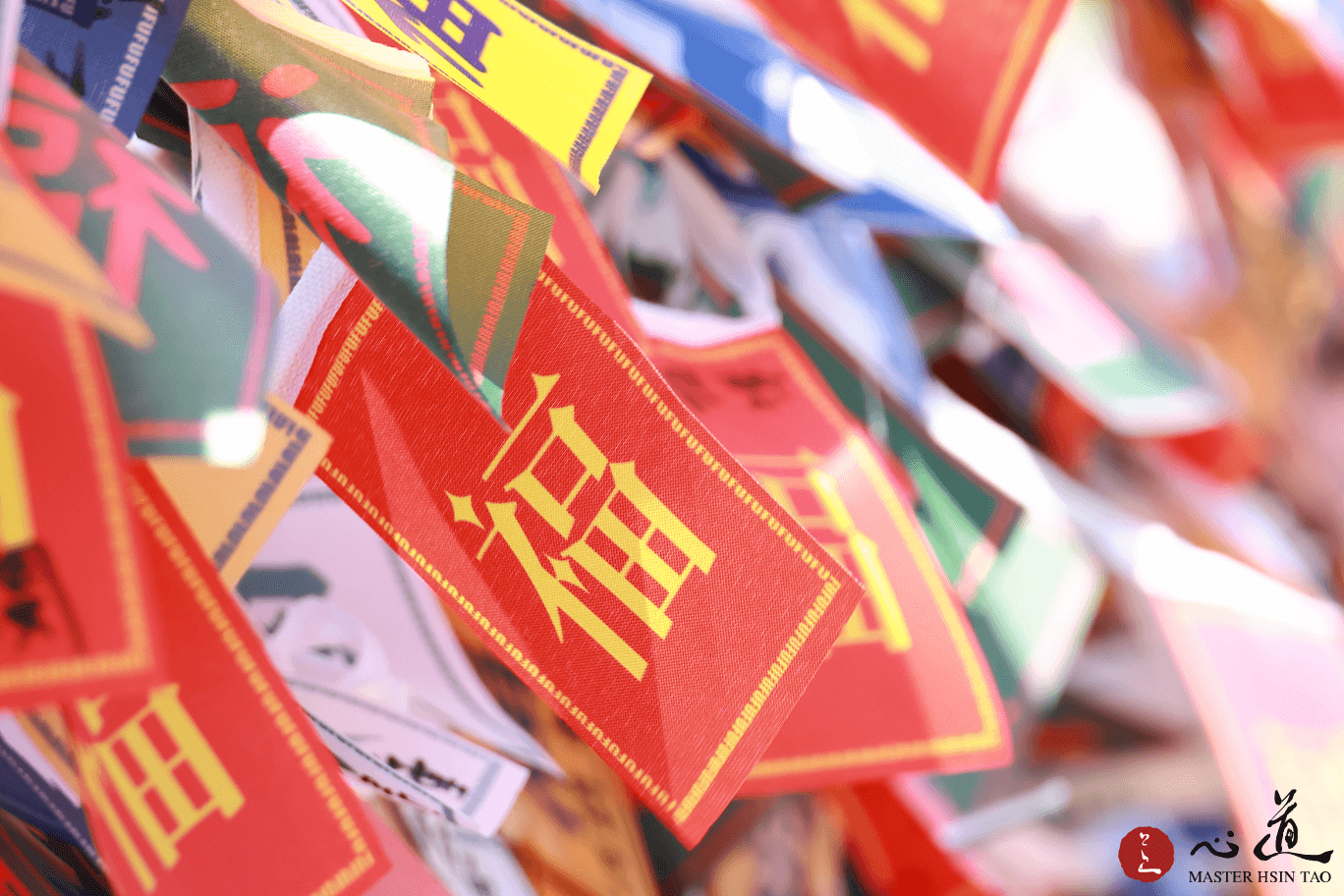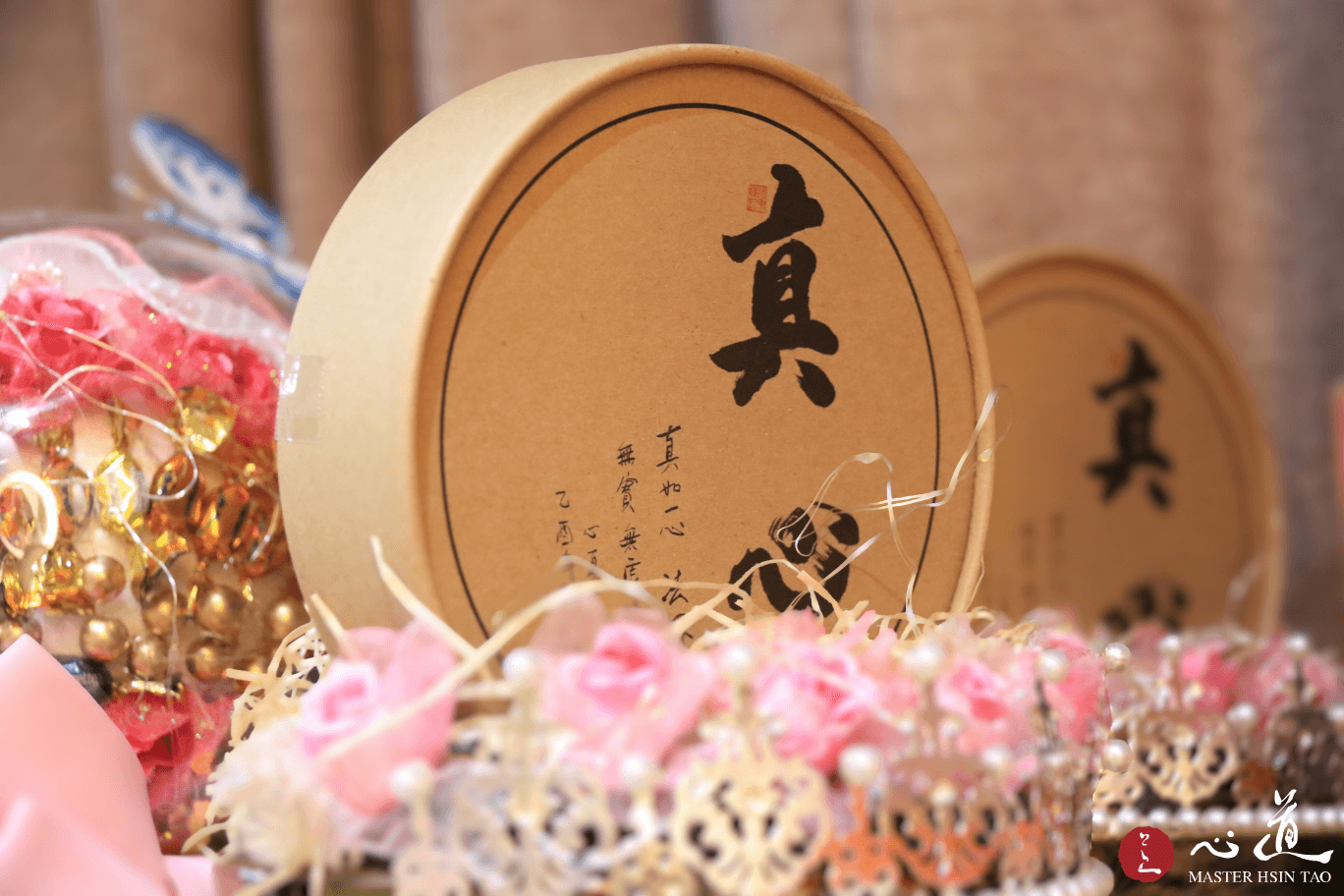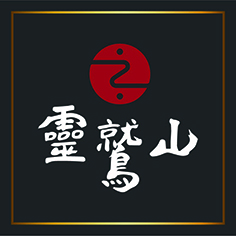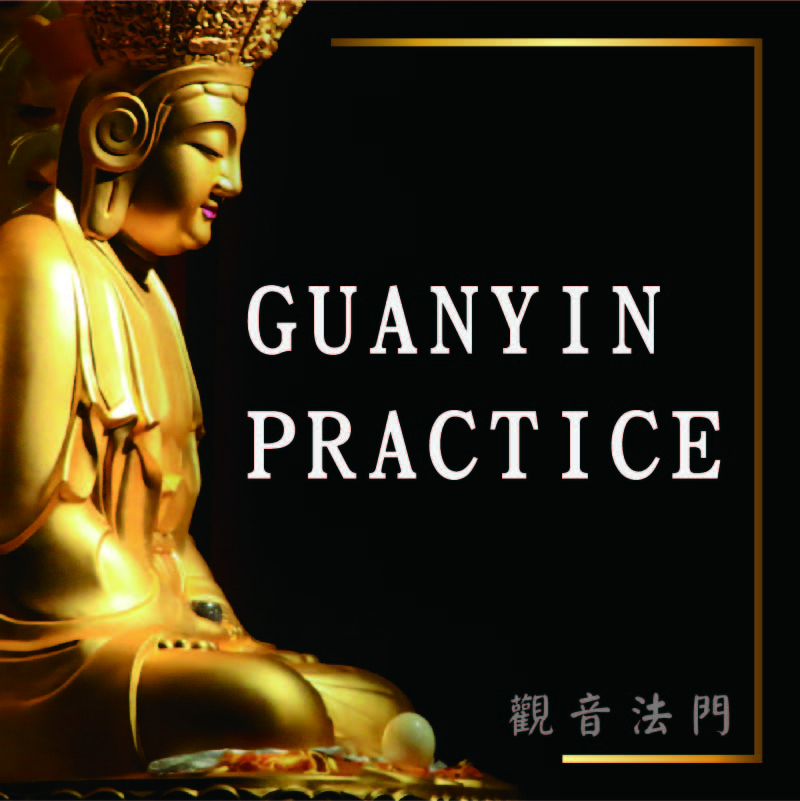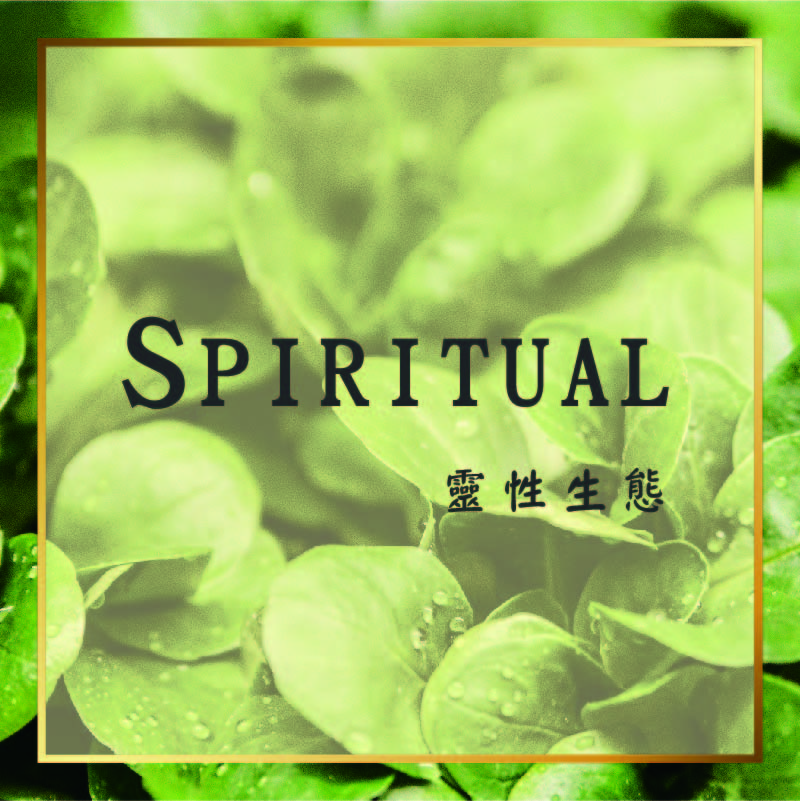
Firm Resolve on the Path: Fulfilling Monasticism
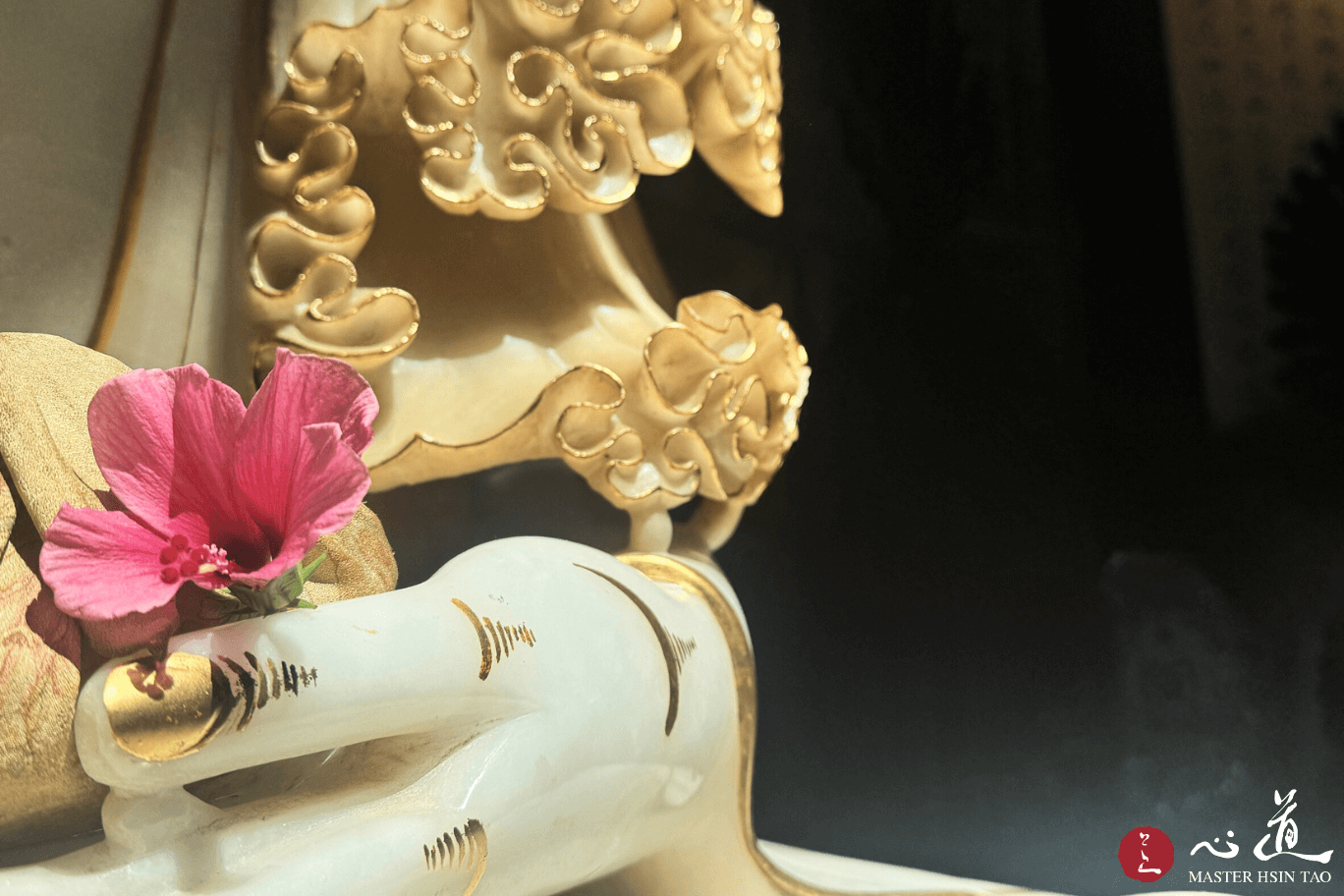 On August 13, 2025, prior to the commencement of the Water, Land, and Air Dharma Assembly, a twenty-one-day Great Compassion Retreat was undertaken. During this period, the novice monks came each morning and evening to assist with the delivery of offering items. In the evenings, during breaks after meditation sessions, discussions were also held with disciples regarding their recent progress in practice.
On August 13, 2025, prior to the commencement of the Water, Land, and Air Dharma Assembly, a twenty-one-day Great Compassion Retreat was undertaken. During this period, the novice monks came each morning and evening to assist with the delivery of offering items. In the evenings, during breaks after meditation sessions, discussions were also held with disciples regarding their recent progress in practice.
To assume monasticism is to cultivate a stable and enduring commitment to the path. This orientation must remain unwavering. Such resolve does not arise suddenly; rather, it is gradually strengthened through continuous effort in all aspects. Only after one has firmly established such resolve can one genuinely engage in the work of propagating the Dharma.
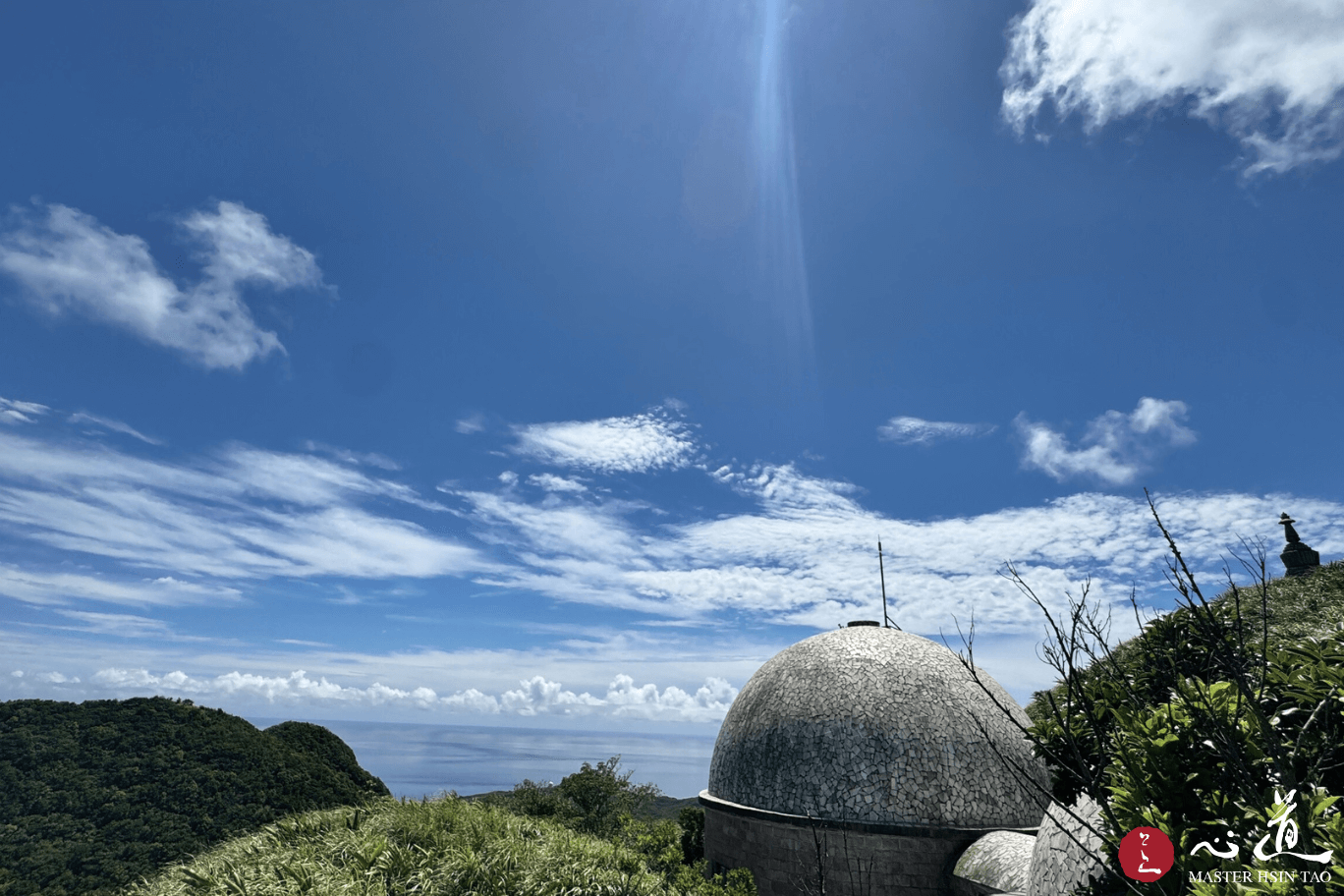 The generation of resolve arises from the aspiration for accomplishment. Accomplishment here refers to an unchanging commitment to the teachings of Buddha Shakyamuni, and to the long-term transmission. Our commitment to practice and propagate Dharma must remain steadfast, taking root so deeply that it will never regress. Therefore, the work of preserving and propagating the transmission of wisdom of the sangha is what monasticism entails. Otherwise, what purpose would there be in renunciation? The true fulfillment lies in propagating and upholding the Buddha’s teaching with unshakable determination.
The generation of resolve arises from the aspiration for accomplishment. Accomplishment here refers to an unchanging commitment to the teachings of Buddha Shakyamuni, and to the long-term transmission. Our commitment to practice and propagate Dharma must remain steadfast, taking root so deeply that it will never regress. Therefore, the work of preserving and propagating the transmission of wisdom of the sangha is what monasticism entails. Otherwise, what purpose would there be in renunciation? The true fulfillment lies in propagating and upholding the Buddha’s teaching with unshakable determination.
For example, when Master Jianzhen journeyed to Japan to propagate the Dharma, he encountered many hardships—losing his sight, experiencing shipwrecks multiple times, and facing countless obstacles that seemed to prevent his passage. Yet, in the end, he succeeded in reaching Japan, where he transmitted the Vinaya and established the foundation for the Dharma to take root and flourish, planting the profound qualities of the teaching that prospered in China. In this way, he instilled in the Japanese people an enduring faith in the Dharma.
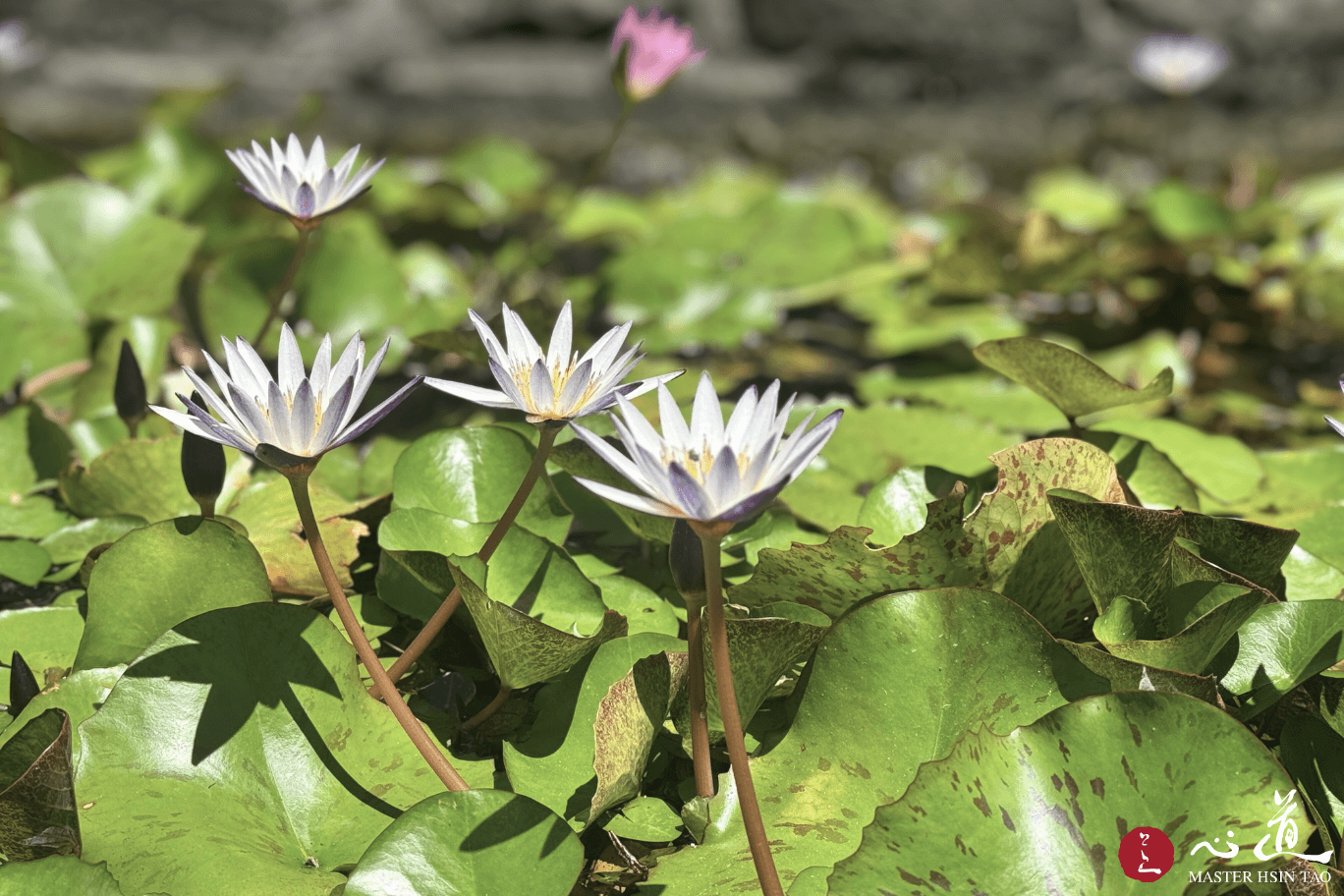 Thus, one must understand that the true purpose of renunciation is not to pursue fame or gain. Such pursuits are fleeting and ultimately insignificant. The genuine cultivation is to develop an unwavering faith in the Buddha, and thereby establish the Dharma on solid ground. We must recognize the importance of, and rejoice in our monastic identity. As disciples of the Buddha, it is our responsibility to transmit and preserve the Buddhadharma.
Thus, one must understand that the true purpose of renunciation is not to pursue fame or gain. Such pursuits are fleeting and ultimately insignificant. The genuine cultivation is to develop an unwavering faith in the Buddha, and thereby establish the Dharma on solid ground. We must recognize the importance of, and rejoice in our monastic identity. As disciples of the Buddha, it is our responsibility to transmit and preserve the Buddhadharma.
For those who later enter monasticism, it is also your responsibility to guide and teach them, instilling in them faith and direction in the Dharma, so that they may experience the nobility of the renunciant life and affirm their own identity as monastics. To be a monk or nun is to “disseminate the Dharma of the Buddhas and benefit all sentient beings.” We must first cultivate ourselves well before we can effectively guide others.


